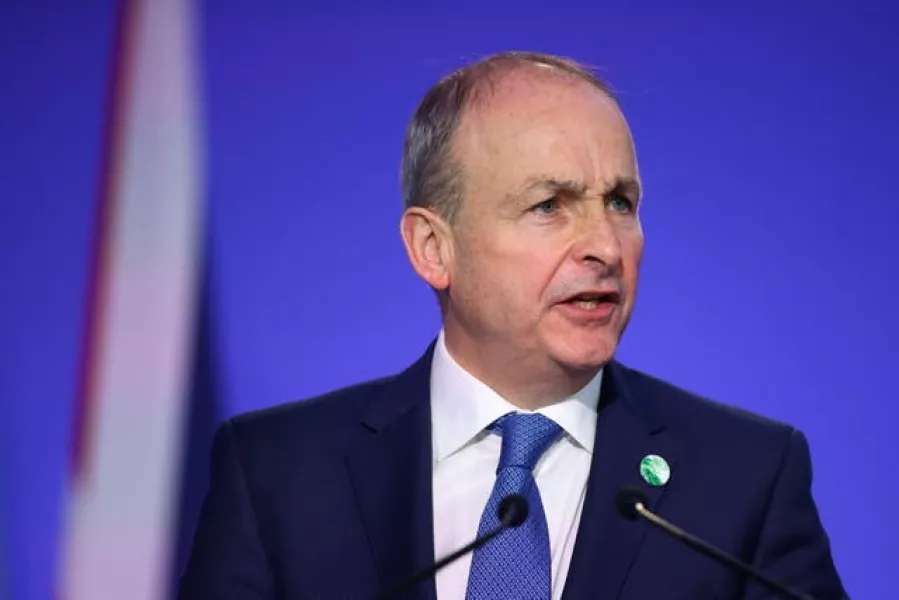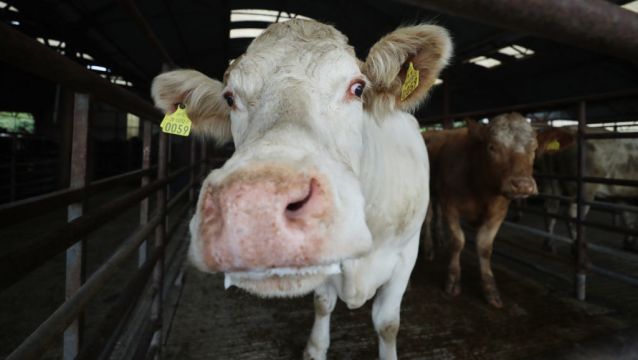Experts and farmers have blasted politicians and officials for a decades-long lack of leadership on farming and climate change.
An Oireachtas committee heard on Tuesday that too often the debate on how farming must adapt to climate change was driven by “misinformation” and a “toxic narrative”.
Dr James Moran, lecturer in biology and ecology in Galway-Mayo Institute of Technology, warned that a lack of leadership and long-term thinking about herd sizes and the wider farming system could “destroy” the agriculture sector.
He said that for years, the Irish Government and the EU had failed to prepare farmers for the changes needed to protect the climate.
“Now we’re at this same cliff edge again with the wrong move and the stroke of a pen, we can destroy our agriculture sector,” Dr Moran warned.
He said that there was a “lack of leadership at department level, at Government level”, and also criticised a lack of clear direction from farming organisations.
“We need the political leadership to make this happen. And we can’t blame Europe.”
“The more we delay action, and the less of an incremental approach, the more we’re going to have to fall at one particular point,” he warned.
The Committee on Environment and Climate Action heard that too often it is not farmers who are unwilling to embrace change, but large businesses and the Government.

It comes as the agriculture sector awaits the publication of the Government’s climate action plan to learn the extent of reductions in carbon emissions which they will be asked to make in the next decade.
Farmers, academics and policymakers are also currently studying the new EU Common Agricultural Policy.
Supports for local farmers were flagged to politicians as a key measure to help transform Irish agriculture.
Ireland is “at a crossroads” in dairy farming, one farmer said.
Donal Sheehan, a dairy farmer in Cork, warned: “Everyone is kicking the dairy cow numbers issue down the road, but we cannot have our cake and eat it.”
He said that large stock numbers that are being encouraged will mean "high artificial nitrogen usage and very little space for nature”.
The environment, he said, had played “second fiddle” to food production.
“We are at a crossroads in dairy farming. We can go down the road of continuous expansion with farms getting larger and larger but farmers becoming less and less and the consequences that has on rural Ireland.
“We are trying to compete with the big dairy countries of the world on scale, but we are losing out on the quality of food we produce.
“I’d actually see real buy in from farmers – I’d be more sceptical about industry and the Government,” Mr Sheehan later told the committee.
Investment
The meeting of the committee comes as world leaders, including Taoiseach Micheal Martin, gather at the Cop26 climate conference in Glasgow.
Earlier, Mr Martin set out the country’s commitment to tackling climate change as he addressed the conference.
Dr Brendan Dunford, the manager of a programme that sees farmers paid to help protect the Ireland’s Burren landscape, called on the Government to invest in the farmers who want to adapt their practices to protect the environment.
He said that experience showed that “results-based incentives” need to become a mainstream way.
Dr Moran, who at one point likened the current situation to standing on the deck of the Titanic, said that no one could say that the kinds of experiments carried out in the Burren and elsewhere couldn’t become mainstream.
“Nobody can tell us that this won’t work in other places,” he told politicians.
“We have tried and tested this.”
Herd size
One of the key debates in recent years has been whether Ireland can manage to reduce emissions while maintaining the same numbers of cattle.
Mr Martin, as well as other ministers, have repeatedly insisted that the size of the national herd will remain “stable”.
In a widely-echoed call for a more nuanced discussion on farming, Dr Dunford suggested that farmers will need to become “first responders” for protecting the environment.

He said that when the Burren programme began, there was a clash between farmers and academics.
“Farmers feel like they’re being victimised.
“We need to flip that on its head.”
He said it was crucial that farmers were not spoken down to.
“Farmers trust other farmers, because they have lived it.”







